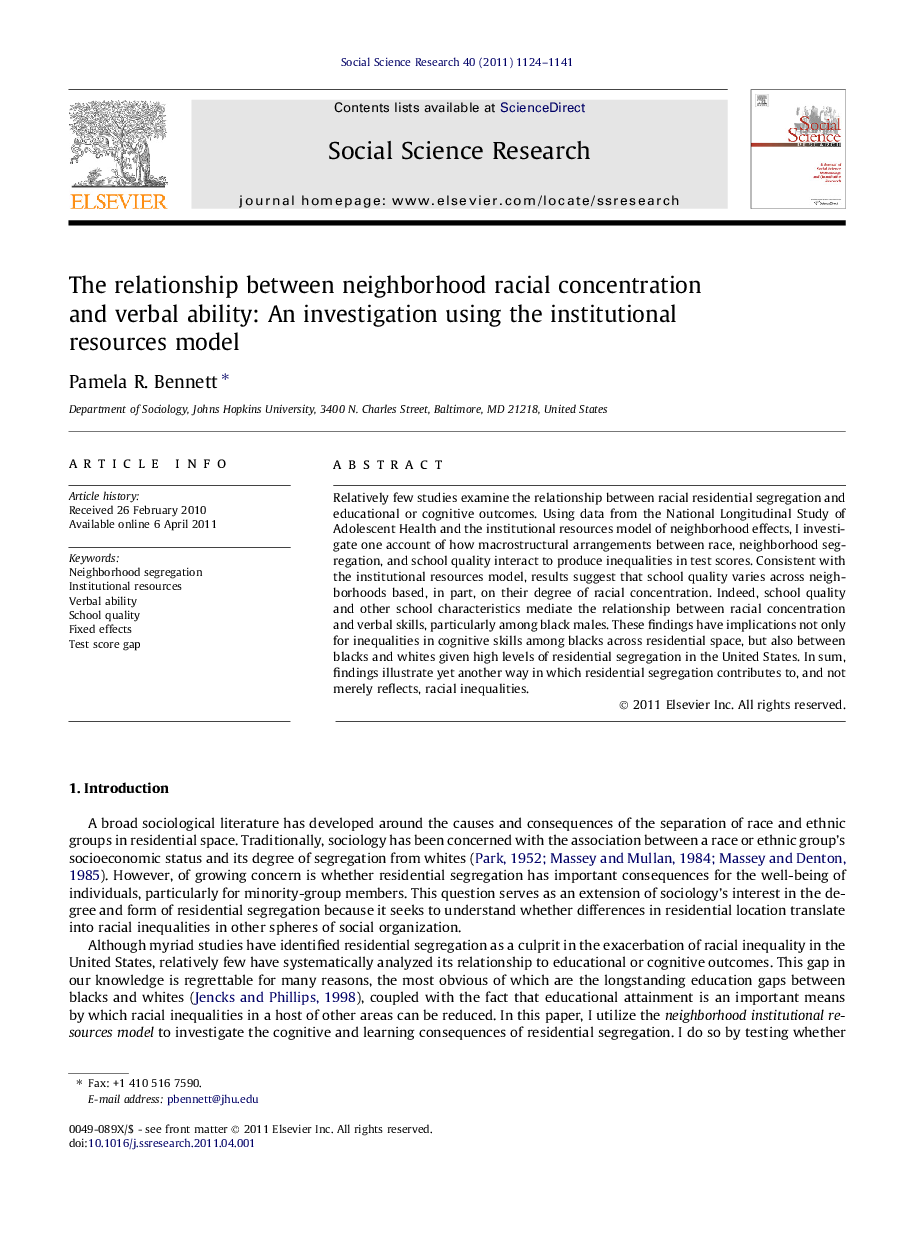| Article ID | Journal | Published Year | Pages | File Type |
|---|---|---|---|---|
| 956150 | Social Science Research | 2011 | 18 Pages |
Relatively few studies examine the relationship between racial residential segregation and educational or cognitive outcomes. Using data from the National Longitudinal Study of Adolescent Health and the institutional resources model of neighborhood effects, I investigate one account of how macrostructural arrangements between race, neighborhood segregation, and school quality interact to produce inequalities in test scores. Consistent with the institutional resources model, results suggest that school quality varies across neighborhoods based, in part, on their degree of racial concentration. Indeed, school quality and other school characteristics mediate the relationship between racial concentration and verbal skills, particularly among black males. These findings have implications not only for inequalities in cognitive skills among blacks across residential space, but also between blacks and whites given high levels of residential segregation in the United States. In sum, findings illustrate yet another way in which residential segregation contributes to, and not merely reflects, racial inequalities.
